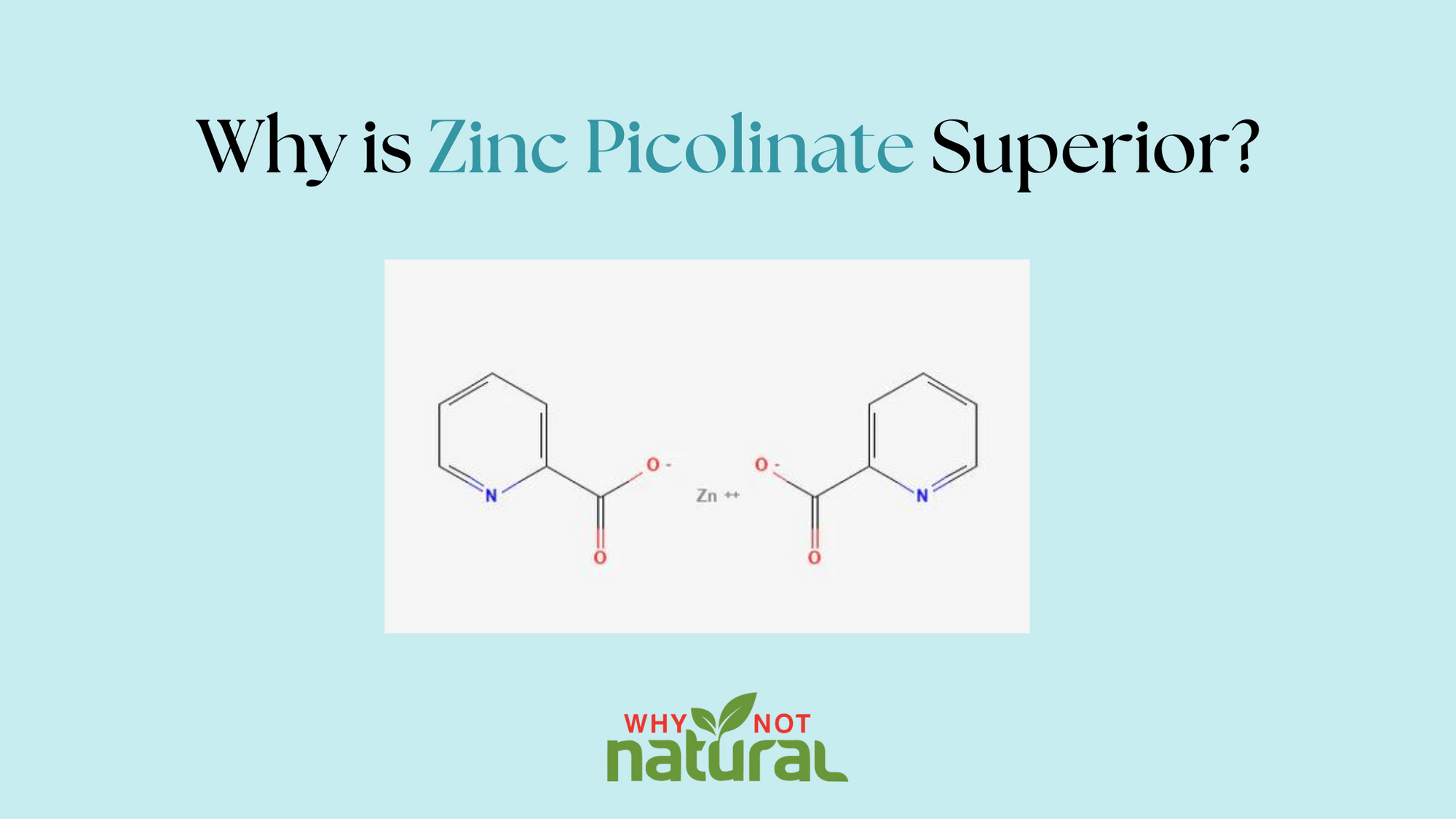

· By Kelin Marquet
Why is Zinc Picolinate Superior?
Zinc is the second-most abundant trace metal in the human body (after iron). Every cell needs it, and maintaining healthy levels is important for overall wellness — from skin health and digestion to wound healing and supporting the immune system.
What is Zinc Picolinate?
Zinc picolinate is a zinc salt of picolinic acid, an organic acid naturally made in the body from the amino acid L-tryptophan.

Image source: PubChem via the National Library of Medicine
Why We Like Zinc Picolinate
Zinc picolinate is considered one of the more bioavailable and well-absorbed forms of zinc. In fact, a 4-week study comparing zinc picolinate to zinc citrate and zinc gluconate found that only zinc picolinate produced measurable improvements in zinc levels across hair, urine, and blood samples (Barrie et al., 1987, Agents and Actions).
That’s one reason we believe it stands out as a great option for those looking for effective absorption.




Zinc Sulfate vs Zinc Picolinate
Many liquid zinc supplements on the market use zinc sulfate because it’s inexpensive. However, zinc sulfate can sometimes cause digestive discomfort. That’s why at Why Not Natural, we chose zinc picolinate (combined with zinc bisglycinate, real elderberry, and vitamin C) to create a unique liquid blend designed with absorption and tolerability in mind.
Chelated Zinc = Easier on the System
Zinc picolinate is a chelated form, meaning it’s attached to another molecule (in this case, picolinic acid). Chelation helps zinc move more easily through the intestines and may also make it gentler compared to forms like zinc sulfate, which are more likely to cause stomach upset.
⚠️ Reminder: Always check with your healthcare provider before starting any new supplement regimen.
Don’t forget to subscribe to our newsletter to learn more about how to pair supplements effectively, get energy-boosting tips, and explore natural ways to support stress balance and overall vitality.
Source:
1- Comparative absorption of zinc picolinate, zinc citrate and zinc gluconate in humans
